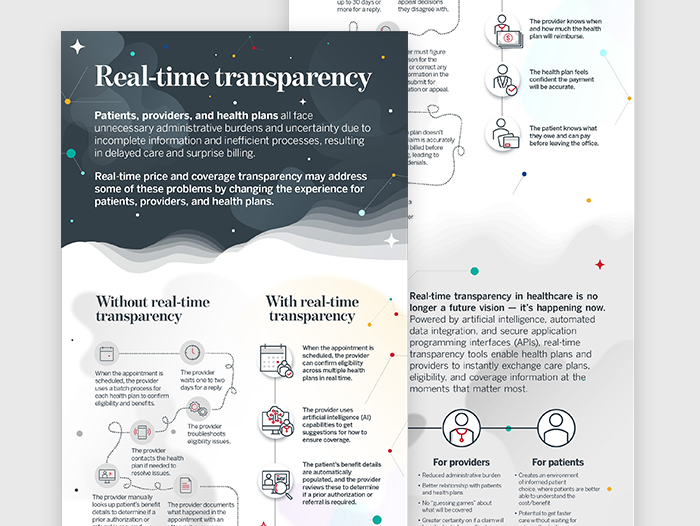Auto logout in seconds.
Continue LogoutIs rapid technological evolution sidelining people's technical skills at work? Writing for the Harvard Business Review, business and management experts Moh Hosseinioun, Frank Neffke, Hyejin Youn, and Letian Zhang reveal that soft skills like communication and problem-solving may matter more in today's work environment than technical expertise.
About the study
For the study, the authors examined U.S. labor market data from 2005 to 2019, capturing over 70 million job transitions across more than 1,000 occupations.
The authors organized hundreds of skills into two broad categories:
- Foundational abilities, which included reading comprehension, teamwork, problem-solving, and basic math
- Specialized, technical capabilities, which included Hadoop engineering and blockchain
When the authors tracked career outcomes over time, a clear pattern emerged. Workers who scored highly on foundational skills advanced further, earned more, learned new abilities quicker, and proved more resilient during periods of industry change than those who relied on narrow technical expertise.
"The presence and development of foundational skills didn't just make workers more competitive for entry-level jobs — they determined how far they could climb the career ladder," the authors write.
The authors likened it to the NBA draft: Teams don't always pick the top college scorers. Instead, they look for players with strong fundamentals — speed, agility, and ball control — that give them room to grow. The same logic applies in business.
Jane Street Capital, for example, hires people for raw quantitative ability rather than trading experience, betting that foundational math skills will help recruits learn quickly and succeed in the long term. By contrast, firms that prioritize only job-ready technical expertise may sacrifice adaptability and long-term performance.
Why it matters in today's work environment
The study's findings take on added weight in today's labor market, where the half-life of technical skills has shortened dramatically. In the 1980s, workers could expect their technical knowledge to remain relevant for about a decade. Today, that window has dropped to roughly four years, and some estimates suggest it could soon fall below two.
"The presence and development of foundational skills didn't just make workers more competitive for entry-level jobs — they determined how far they could climb the career ladder"
Entire skill sets have already risen and fallen in short order. Adobe Flash was once the gold standard for interactive web content but collapsed after browsers phased it out. Hadoop, once central to data engineering, is now among the fastest-declining technical skills, according to HackerRank’s 2025 Developer Skills Report. LinkedIn data shows blockchain job postings and developer activity dropping more than 40% in just a year as investment shifted to AI.
At the same time, social skills are growing increasingly valuable. David Deming's landmark study of U.S. jobs found that roles requiring a high level of social interaction grew by nearly 12 percentage points between 1980 and 2012, while math-heavy but low-interaction jobs declined. Wages followed the same pattern, with jobs blending cognitive ability and social skill commanding the highest premiums.
Employers are adapting in response. A large-scale analysis of 34 million U.S. managerial job postings shows that since 2007, companies have tripled their emphasis on collaboration, coaching, and influence, while language about traditional supervision has steadily declined.
Google's Project Oxygen study reached a similar conclusion after reviewing thousands of performance evaluations: the company's best managers excelled at coaching and communication. Amazon has committed more than $1 billion to its Upskilling 2025 initiative, funding programs that strengthen both technical and soft skills. Meanwhile, Spotify's "squad" model rewards engineers who can bridge design, product, and marketing within autonomous, cross-functional teams.
RELATED resources
- 7 ways you can improve your soft skills, even as a remote worker
- Using member preferences to communicate effectively
- 4 ways of thinking leaders should embrace
- 3 important roles for leadership teams at work
- The Critical Thinking Toolkit
- 5 well-intentioned behaviors that actually hurt your team
- Getting from ideas to insights
3 actions for leaders
The authors suggest three clear steps organizational leaders can take to future-proof their workforce:
1. Hire for potential, not just proficiency
Companies should screen for foundational strengths such as adaptability, problem-solving, and communication — even in technical roles. "In the long-run, candidates with a base of foundational skills will prove more valuable than those who have hyper-specialized knowledge but lack soft skills," the authors write.
2. Invest early in development
Because foundational skills are difficult to build later, organizations should provide early-career training in communication, collaboration, and critical thinking, not just technical proficiency. As the authors note, "someone struggling with math, for instance, won't become fluent through a few online tutorials; the same holds for social skills like critical thinking and empathy, which develop over years through school, peer interaction, and mentorship."
3. Model and reward soft-skill behaviors
Managers can reinforce these skills daily by recognizing thoughtful communication, collaborative problem-solving, and cross-functional learning. Practices like peer feedback, mentoring, and team retrospectives should be structured to highlight and reward soft-skill development.
In an era when specialized expertise may expire in just a few years, foundational skills are what last. Workers who excel at adaptability, communication, and problem-solving can ride out disruption and thrive in new roles.
For leaders, prioritizing these skills is not just good hiring practice — it's the foundation of a workforce built to grow with change.
(Hosseinioun, et al., Harvard Business Review, 8/26)
Don't miss out on the latest Advisory Board insights
Create your free account to access 1 resource, including the latest research and webinars.
Want access without creating an account?
You have 1 free members-only resource remaining this month.
1 free members-only resources remaining
1 free members-only resources remaining
You've reached your limit of free insights
Become a member to access all of Advisory Board's resources, events, and experts
Never miss out on the latest innovative health care content tailored to you.
Benefits include:
You've reached your limit of free insights
Become a member to access all of Advisory Board's resources, events, and experts
Never miss out on the latest innovative health care content tailored to you.
Benefits include:
This content is available through your Curated Research partnership with Advisory Board. Click on ‘view this resource’ to read the full piece
Email ask@advisory.com to learn more
Click on ‘Become a Member’ to learn about the benefits of a Full-Access partnership with Advisory Board
Never miss out on the latest innovative health care content tailored to you.
Benefits Include:
This is for members only. Learn more.
Click on ‘Become a Member’ to learn about the benefits of a Full-Access partnership with Advisory Board
Never miss out on the latest innovative health care content tailored to you.


